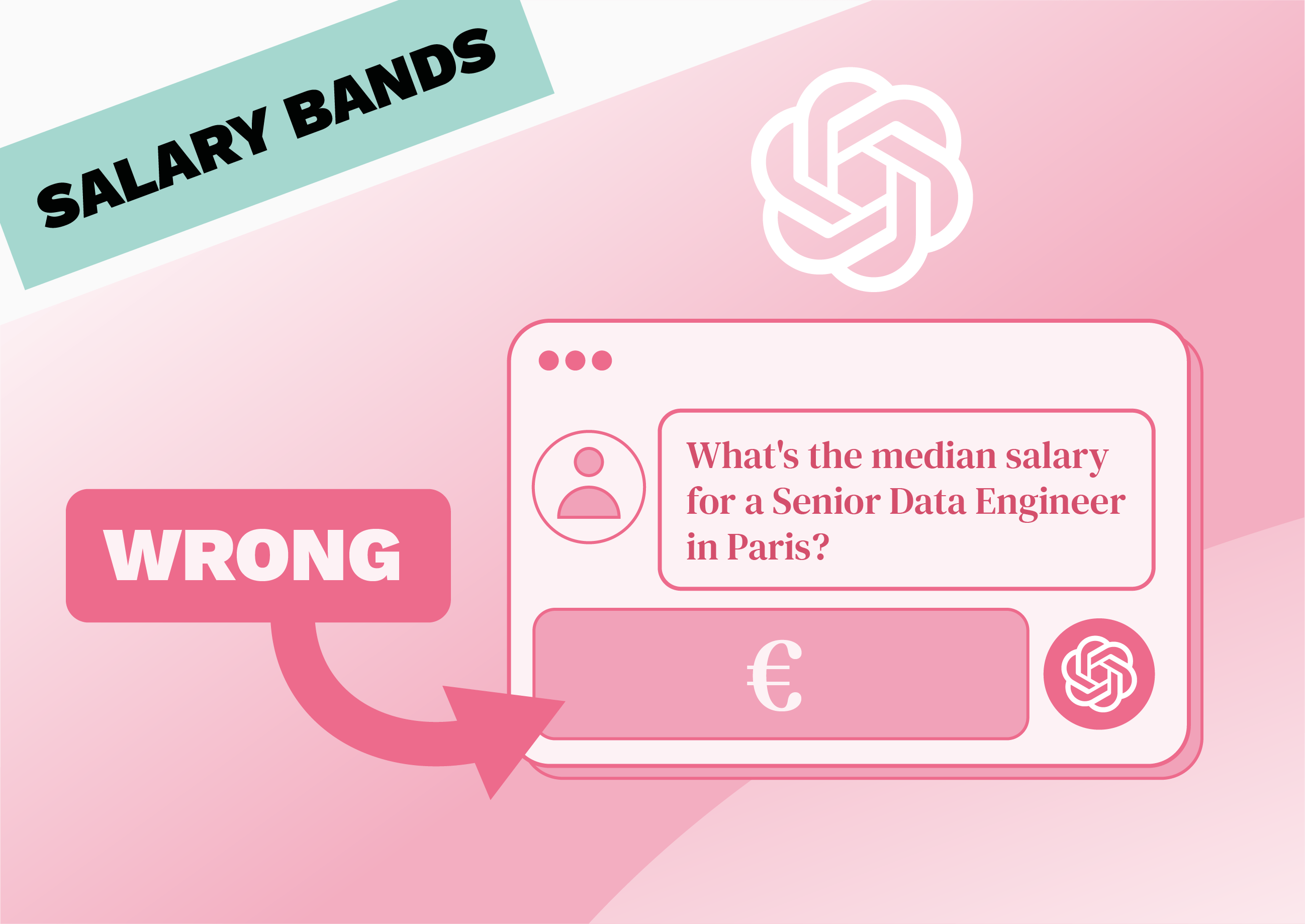Supporting Employees in a Changing World With Nebel Crowhurst
We recently sat down with Nebel Crowhurst, Chief People Officer at Reward Gateway.
Nebel is an impressive HR practitioner whose track record includes leading people teams at Virgin Holidays and River Island. She’s also a sought-after speaker and was named as one of HR Magazine’s Most Influential Practitioners in 2021, 2022 and 2023.
So naturally, we were thrilled when she agreed to join us (with her cat) to chat about all things HR and compensation. Here are a few of the things that came up during our conversation:
- Nebel’s non-traditional route into HR leadership
- The joy of working in HR for an HR business
- The top challenges facing today’s people leaders
- What the future looks like for HR and compensation
A non-traditional pathway into HR
We’re always interested to find out how our guests started their journeys towards HR leadership — and it turns out that Nebel didn’t take the traditional path.
“I certainly didn’t know at school that I wanted to work in HR,” she told us. “I don’t think many people do!”
Nebel actually started her career in learning and development (L&D), eventually moving into HR from there. Nebel even completed both her bachelor’s and master’s degrees while working in HR roles across a variety of different industries.
“I’ve quite consciously chosen to work in different industries and different-sized companies,” she told us, “because I think it helps to build your credibility as an HR professional. If you stay too long in one space, I think you can fall short of understanding the markets and the impact you can have in a business.”
Working in HR for an HR business
These days, Nebel is Chief People Officer for Reward Gateway, the UK's leading employee engagement platform That puts her in the interesting position of working in an HR role within a business that is itself focused on HR.
Because of this, Nebel spends a lot of time working with the company’s sales and marketing teams to help provide thought leadership for the industry as a whole.
“I lean into that because that's really helpful for me, as I get to tap into the networks and communities of our amazing clients that we work with,” she told us. “But I also feel like I can give back as well. I can share stories and I can share insights. It's kind of a two-way thing.”
And Nebel is also excited to be working with Reward Gateway in particular, since it’s a leader in the space that she followed even before her appointment.
“Reward Gateway is an organisation that I always followed, even before I joined,” she told us. “So I’m very lucky now to be inside and be part of it.”
So, what are HR leaders thinking about right now?
The best part of sitting down with HR and people leaders? Getting to pick their brains about what’s going on in the world of HR right now — and what the landscape will look like over the next few years.
Here are some of the things that came up over the course of our discussion.
1. Benchmarking for competitive pay and benefits
One of the big projects that Nebel and her team are working on right now is a global benchmarking exercise — something that we happen to know a thing or two about here at Figures.
As we’ve talked about, salary benchmarking can give you invaluable insight into the standard salaries in your industry. It’s then up to each company to decide where they want to sit within that market.
And, according to Nebel, it’s really important to take your benefits into account when you’re making this decision.
“For us specifically at Reward Gateway, we really dial up our benefits,” she told us.
That’s partly because, as a benefits platform, Reward Gateway is able to lean on their own technology and solutions. For example, employees get access to an impressive employee discount programme that effectively extends their income by giving them money off everything from everyday purchases to luxury holidays.
“When you look at that as a total reward, the benefits piece is really valuable,” Nebel said. “So we then put ourselves as a median pay range payer, because when you put that up against the benefits we offer, that feels like the right space to be in.”
2. The move towards pay transparency
With the EU Pay Transparency Directive just around the corner, we’d be willing to bet that pretty much every HR leader has transparency on the brain at the moment — and Nebel is no exception.
But while Nebel agrees that creating an open and transparent culture around pay is a positive thing, she also acknowledges that starting the conversation can be tricky — especially in the UK.
“We operate out of Bulgaria, where it’s a very comfortable conversation. People are very transparent about their pay, and they talk about it quite openly,” she shared with us. “But I think it’s safe to say that we’re a bit more conservative in the UK. We don’t talk about one another’s pay, it’s just not the done thing.”
Mostly, that’s because being open about pay can lead to awkward situations and even frustration on the part of employees who find out they’re being underpaid compared to their colleagues.
But according to Nebel, the solution to this is simple, even if it’s a lot of work: develop a fair and equitable compensation strategy, and then communicate clearly about it to your employees:
“If we can do a really good job of helping people to understand that pay is based on benchmarking data and that we’re using fair pay range principles, everyone should feel that the pay they’re getting for the contribution they make is fair.”
In other words, it’s actually not pay transparency that causes problems — but companies paying unfair salaries in the first place.
3. Going beyond gender pay gap reporting
HR practitioners and commentators have all been talking non-stop about the gender pay gap over the last few years (we’re no exception). Since 2017, UK employers with 250 or more employees have to report on their gender pay gap every year. And the upcoming EU Directive will bring in even more requirements across Europe when it’s adopted in 2024.
But during our conversation with Nebel, we got to talking about an adjacent topic that’s not talked about nearly as often: the ethnicity pay gap.
“I think we’ve been significantly delayed on legislation around ethnicity pay gap reporting, but I think we should all be proactively working towards doing it anyway,’ Nebel said.
Of course, this isn’t without its challenges: for one thing, employers don’t typically collect information about their employees’ ethnicities. That means that companies wanting to move forward with reporting will need to ask their people to provide this information themselves — which requires a huge amount of trust in the organisation.
Despite the difficulties, Nebel is confident that this is something we’ll be seeing more of in the next few years.
“I think it’s a really important piece of work. We’re not there yet, but we know that we need to be, so it’s something that’s on our agenda.”
4. HR as a spokesperson for diversity, equity and inclusion
Finally, we got to chatting about DEI initiatives and the role HR has to play in rolling them out. Nebel doesn’t think that HR should own and lead these conversations — but does think that they should be the “catalyst and custodian of everything around DEI and the business”.
Of course, this won’t happen overnight — and Nebel acknowledges that it’s a huge piece of work for any organisation.
“Everybody across the business should play a part in it. But HR could be the spokespeople to make sure it doesn’t get pushed to the bottom of the agenda.”
Supporting employees in a changing world
A lot has changed over the past few years. And the way employees relate to work (and what they need from it) has changed too. In fact, if we had to distil our whole conversation with Nebel into one concept, this would probably be it.
First of all, Nebel pointed out the importance of regularly refreshing your benefits programme to make sure it’s still relevant to the people using it.
“There’s no point in having something that no one ever uses, especially if it costs you money,” she said.
And in an era where employees’ needs and values are quickly shifting, it’s even more important than ever to make sure what you’re offering is actually useful.
“For example, the cost-of-living crisis is huge and continues to have a knock-on impact on people’s wellbeing,” Nebel said. “What we’re doing in terms of benefits needs to be responsive to that.”
In fact, employee wellbeing came up a few times in our conversation — so it was no surprise to hear that Nebel sees it as an absolutely essential consideration for today’s employers.
“I don’t think we can avoid that as businesses any more,” she explained. “You could have argued a few years ago that it’s a nice-to-have, to have a wellbeing strategy. But I don’t think it is a nice-to-have any more. I think it’s a fundamental imperative because of how stressful life can be.”
More HR and compensation insights
Want to get more valuable insights from HR and comp & ben leaders around the world?
Check out the other articles in our interview series:
- Putting the 'People' Back in People Management with Jason Waterman
- The Future of HR and Compensation with Aaisha Knights-Ihediwa
- Adapting Comp and Ben for Today's Workplace With Halina Ellis





